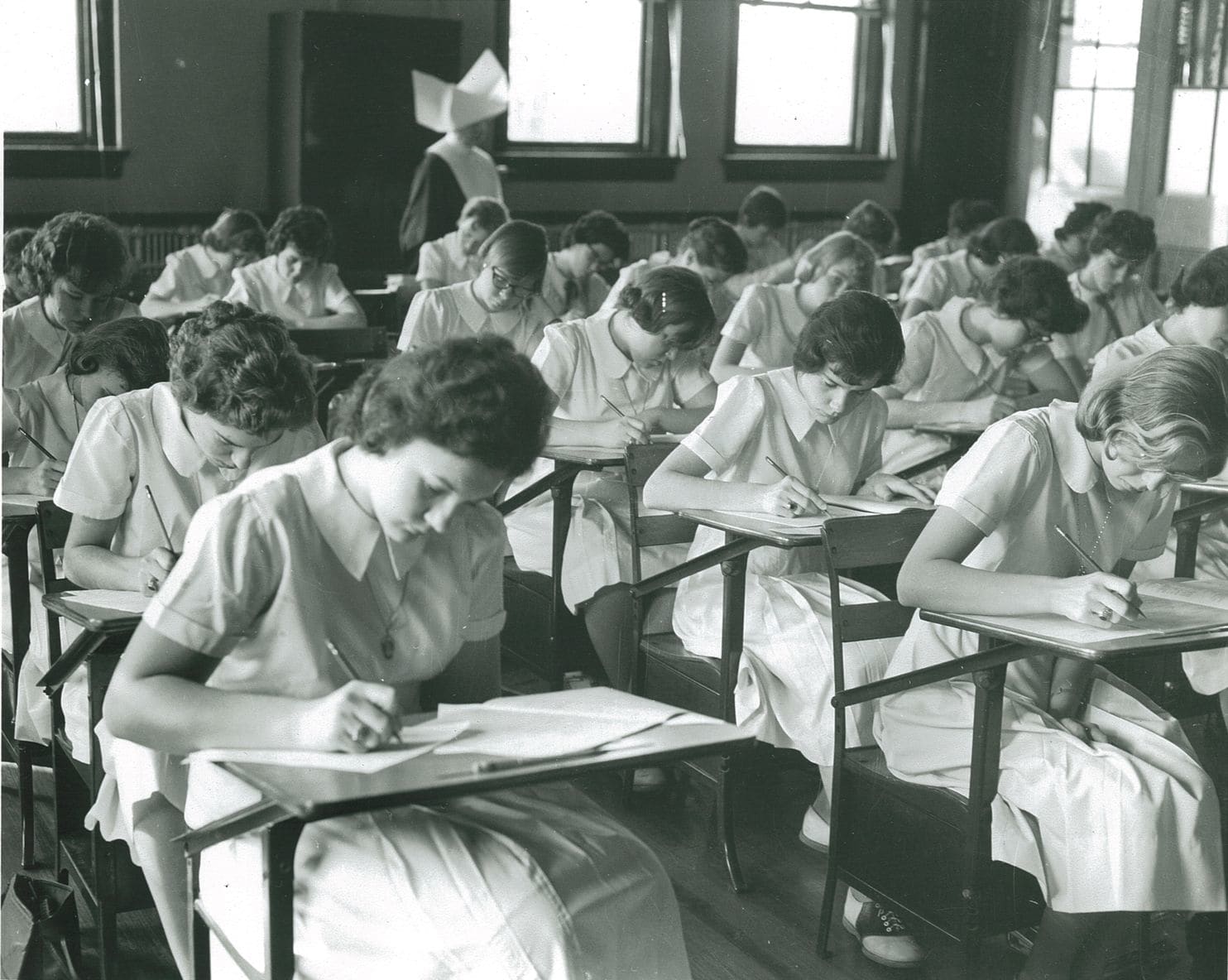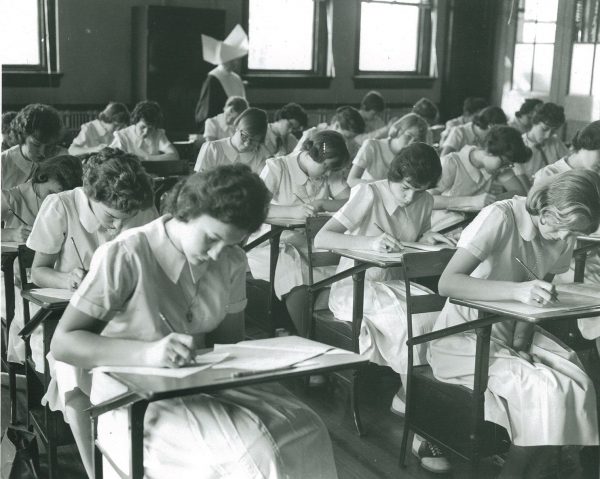
18 Nov Accidental Alzheimer’s Test
An article written by Tara Bahrampour for The Washington Post looks back to the 1960s, but this time, not to the Vietnam War and the antiwar protests, not to the Civil Rights movement and those protests, not to the high-profile assassinations and not to the emerging “gender gap.” The focus of the story was on a test given to half-million teens in the 1960s. The results turned out to correlate with the risk of Alzheimer’s disease in later life: a low score meant a higher risk. Read on for more, including sample questions.
High school students in 1960 take the Project Talent test, the largest survey of American teenagers ever done; it is now being used for research into dementia. (American Institutes for Research)
In 1960, Joan Levin, 15, took a test that turned out to be the largest survey of American teenagers ever conducted. It took two-and-a-half days to administer and included 440,000 students from 1,353 public, private and parochial high schools across the country — including Parkville Senior High School in Parkville, Md., where she was a student.
“We knew at the time that they were going to follow up for a long time,” Levin said — but she thought that meant about 20 years.
Fifty-eight years later, the answers she and her peers gave are still being used by researchers — most recently in the fight against Alzheimer’s disease. A study released this month found that subjects who did well on test questions as teenagers had a lower incidence of Alzheimer’s and related dementias in their 60s and 70s than those who scored poorly.
Known as Project Talent, the test was funded by the U.S. government, which had been concerned, given the Soviet Union’s then-recent successful Sputnik launch, that Americans were falling behind in the space race.
Students answered questions about academics and general knowledge, as well as their home lives, health, aspirations and personality traits. The test was intended to identify students with aptitudes for science and engineering. Test-takers included future rock stars Janis Joplin, then a senior at Thomas Jefferson High School in Port Arthur, Tex., and Jim Morrison, then a junior at George Washington High School in Alexandria, Va.
In recent years, researchers have used Project Talent data for follow-up studies, including one published Sept. 7 in the Journal of the American Medical Association. Conducted by researchers at the Washington-based American Institutes for Research (AIR), the organization that originally administered the test, it compared results for more than 85,000 test-takers with their 2012-2013 Medicare claims and expenditures data, and found that warning signs for dementia may be discernible as early as adolescence.
The study looked at how students scored on 17 areas of cognitive ability such as language, abstract reasoning, math, clerical skills, and visual and spatial prowess, and found that people with lower scores as teenagers were more prone to getting Alzheimer’s and related dementias in their 60s and early 70s…



Sorry, the comment form is closed at this time.